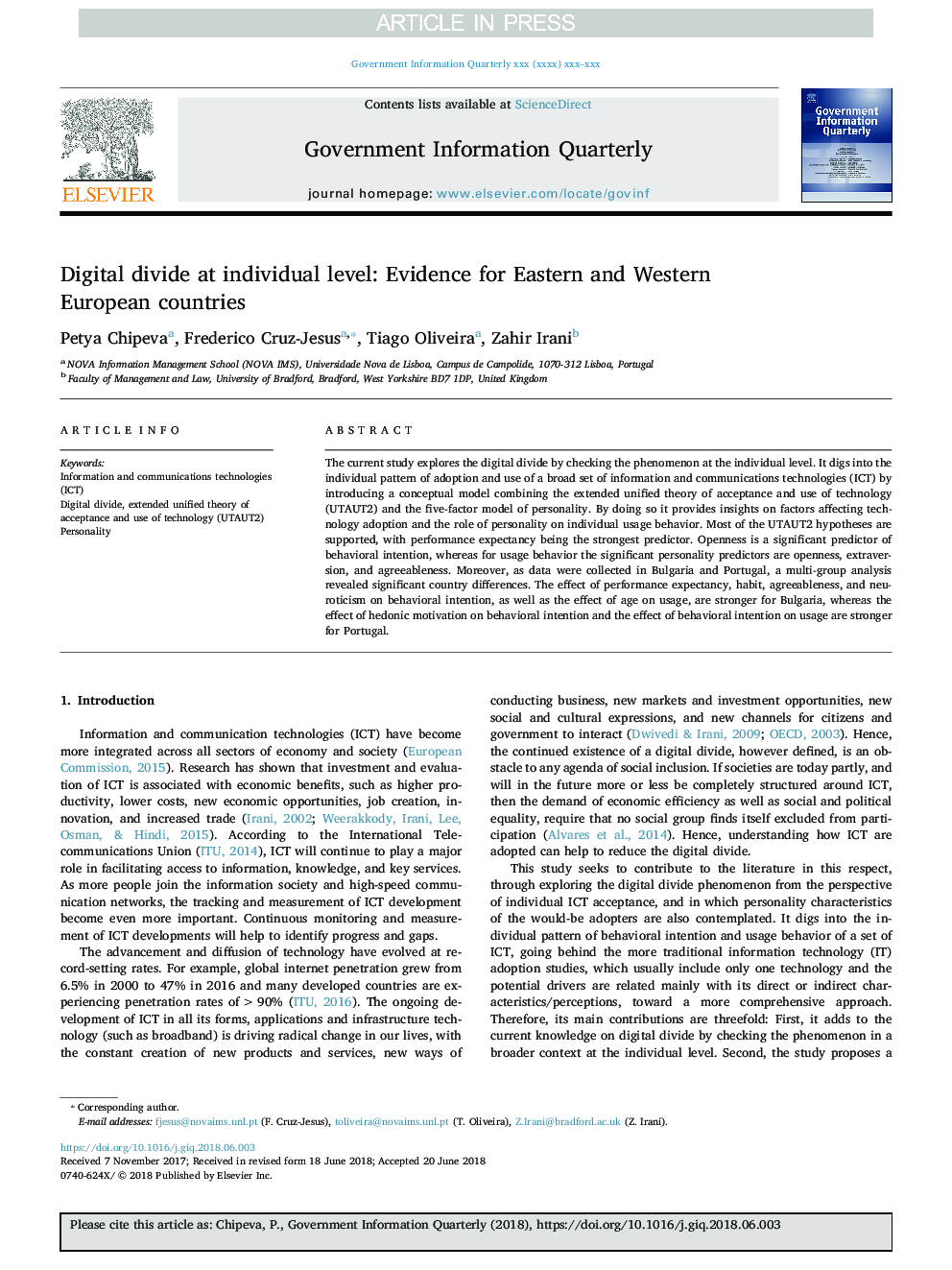| Article ID | Journal | Published Year | Pages | File Type |
|---|---|---|---|---|
| 7428466 | Government Information Quarterly | 2018 | 20 Pages |
Abstract
The current study explores the digital divide by checking the phenomenon at the individual level. It digs into the individual pattern of adoption and use of a broad set of information and communications technologies (ICT) by introducing a conceptual model combining the extended unified theory of acceptance and use of technology (UTAUT2) and the five-factor model of personality. By doing so it provides insights on factors affecting technology adoption and the role of personality on individual usage behavior. Most of the UTAUT2 hypotheses are supported, with performance expectancy being the strongest predictor. Openness is a significant predictor of behavioral intention, whereas for usage behavior the significant personality predictors are openness, extraversion, and agreeableness. Moreover, as data were collected in Bulgaria and Portugal, a multi-group analysis revealed significant country differences. The effect of performance expectancy, habit, agreeableness, and neuroticism on behavioral intention, as well as the effect of age on usage, are stronger for Bulgaria, whereas the effect of hedonic motivation on behavioral intention and the effect of behavioral intention on usage are stronger for Portugal.
Related Topics
Social Sciences and Humanities
Business, Management and Accounting
Business, Management and Accounting (General)
Authors
Petya Chipeva, Frederico Cruz-Jesus, Tiago Oliveira, Zahir Irani,
